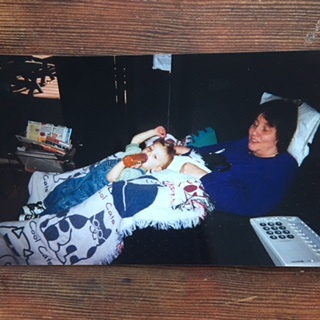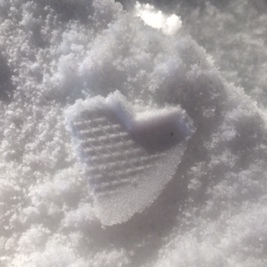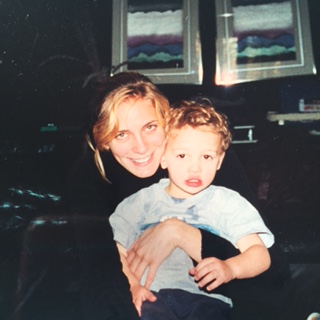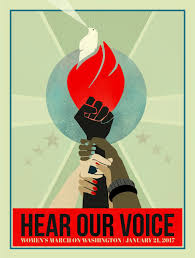
Recently my husband complained about the weather. “I’m done with winter,” he said, glancing out our kitchen window at the muted gray sky. All the snow had melted leaving behind the messier side of the season.
I agreed. Winter without snow looks, and feels, especially dreary. But I know the monotony of these cold spare months will eventually turn into spring, and the contrast between the two will be a gift.
I’ve always felt this way about seasons, about life. How we need the light and the dark, grief and joy, to feel fully alive. If we want to taste all the flavors, we must drink out of every cup, even the less appetizing ones.
Choosing the cup of discomfort, for example, instead of ignoring it. This has been on the periphery of my mind for years, but it rose swiftly to the surface after my country’s recent presidential election result.
What a wake up call that was, to many people I know, in particular, white people. Getting more particular, white women. Even more so: Myself.
Women of color, people of color, were not surprised. There was a scathing and funny Saturday Night Live sketch about this “phenomenon.” A group of white liberal city dwellers (in a neighborhood that looked suspiciously like my old one in Brooklyn) choked on their glasses of wine watching the election results while their two black friends rolled their eyes and howled in laughter at their ignorance.
It’s uncomfortable being called out as a rube, even more so as a perpetrator, but that’s what you are when you stand by and do nothing. When you’re even a little surprised by the widespread virulent and rampant racism that has been around for decades, centuries, that people of color live with every single day.
A writing friend wrote a short and fiery post entitled, MLK Isn’t A Holiday. “It is a call to action,” she said. But more often than not, for white people especially, it’s a day where many Instagram and Facebook feeds are rife with hopeful images and love filled quotes, mine included. Then, nothing. Until next year, Dr. King.
I squirmed in recognition. I have been that person. I am that person in some ways, but I’m changing. It’s a daily practice. It takes effort, and often, it’s uncomfortable.
This Saturday I’ll be attending the Women’s March on Washington. I signed up in November, a week after the election. Early on there were rumblings of discontent. About leadership, about the proposed name (The Million Woman March, which had been an African American women’s protest in Philadelphia in 1997).
Some white women couldn’t understand why there was a controversy at all. Why they were being asked to “check their privilege” and let women of color lead the way (literally and figuratively).
But the women who sowed the seeds of this march knew why. As momentum gathered, it was clear that after an election where 53% of white women voted for Trump, they alone could absolutely not lead this march.
I was relieved when minority activists took the helm and the march was renamed. The Women’s March on Washington is a respectful nod to Dr. Martin Luther King Jr.’s famous March on Washington in 1963, and came with a blessing from his daughter, Bernice King.
Racism within feminism has been a sticking point for decades. Transferring the bulk of leadership to minority activists was a chance for this march, and feminism, to go broader and deeper than the core concepts of equal pay and reproductive freedom. Those rights are vital, of course, but they are not the only ones that matter.
This quote from a recent Vogue article explores the layers of meaning behind the march:
“Where past waves of feminism, led principally by white women, have focused predominantly on a few familiar concerns—equal pay, reproductive rights—this movement, led by a majority of women of color, aspires to be truly intersectional. So though the Women’s March has partnered with organizations like Planned Parenthood and NARAL Pro-Choice America—and though second-wave feminist icon Gloria Steinem is now an honorary co-chair [along with Harry Belafonte] —the march’s purview is far more sweeping. Women are not a monolith, solely defined by gender; we are diverse, we represent half of this country, and any social justice movement—for the rights of immigrants, Muslims, African-Americans, the LGBTQ community, for law enforcement accountability, for gun control, for environmental justice—should count as a “women’s issue.””
Women’s rights are human rights, to quote Hillary Clinton, and on Saturday, January 21st 2017, the day after the presidential inauguration, women and men are coming together to raise their voices and their fists in protest.
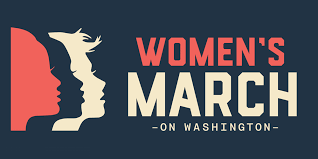
Can’t make it to Washington DC? Check out this incredible list of sister marches across the country – wait, let me amend this – across the globe.

